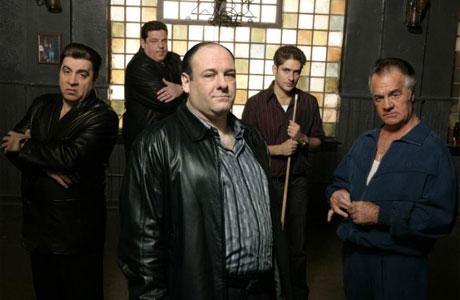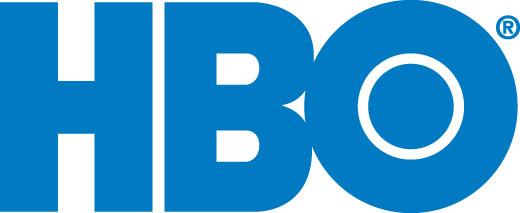[Editor's note: Our colleagues on the other side of the pond may have different specific gripes, but, as rabid and discerning TV lovers, we share the same problem: major frustration at the inability to see some of our favorite shows on home video. Tom Brinkmoeller's Raised on MTM rant about the unavailability of Brooklyn Bridge, which you can read HERE, remains one of this site's all-time most commented-upon columns — and I plan to vent similarly, soon, about the lack of complete DVD packaging for The Days and Nights of Molly Dodd, St. Elsewhere, The Wonder Years and so on. But for now, read what it looks and feels like from a scholarly point of view. -DB]
By Kim Akass and Janet McCabe
At the Quality American TV conference in Dublin back in 2004 Maire Messenger Davies highlighted a key problem in studying television: namely, the question of availability. She mentioned NBC's critically acclaimed series I'll Fly Away (1991-93), which lived on in memory but not in any tangible form like DVD or video. (To this day it is stil only available on Region 1 DVD format.) The comment got us thinking. We had been formulating the idea for a series of TV books and what she said struck home.
When we came to plan the Reading Contemporary Television series for I.B. Tauris, our aim was to capture the zeitgeist, moments in television, to create, in fact, an archive of memory and criticism before the shows under discussion disappeared from view. Writing about Sex and the City (1998-2004) and The Sopranos (1999-2007) we had experienced first-hand the problems of creating our own archive. Who would be around to do the taping, for example? God forbid if both of us went out on Friday night (and before anyone says it — no, neither of us could operate the timer).

Back then it did seem as if writing about TV mimicked the practices of popular culture. Either we talked of the latest 'hot' new show or we talked of classics. Such practices opened us up to criticism: that we merely replicated how the institution of television operates, with its insatiable hunger for the new and its canonisation of particular shows to fill voracious scheduling needs. And this is to say nothing of early TV. With much of it lost, only ever experienced in initial transmission, scholars were forced to re-construct programs from production notes, scripts and other available broadcasting documentation. Interviews, recollections and personal archives also helped jog the collective memory of shows long gone.
But, does not this state of affairs explain why we speak as we do?
It is how our knowledge is stored and distributed, how its availability prompts us to speak in the first place that is important. It is a vital question, and one contemplated in this first TV Reflections. What is at stake here is the way in which our knowledge of television is, in the words of Michel Foucault, 'put into discourse' (1990: 11). What channels does it take; what are the (sometimes unconscious) rules defining what can and cannot be said, and how what is known is overwhelmingly determined by the way it is known.

Take HBO as an example. Emerging out of commercial and cultural shifts within the US television industry, the premier cable company made visible a new set of rules for producing and consuming television in the post-1996 era. Its original programming — The Sopranos, The Wire (2002-2009), Deadwood (2004-2006), Sex and the City, Six Feet Under (2001-2005) — serve as instances that disseminate and implant knowledge of what constitutes a new form of television culture. But it is how HBO determines that knowledge and uses its position as a market leader to shape how and what we, as scholars, can use that we want to draw attention to here.
We do not wish to imply that HBO is better than regular TV (and, let's face it, there is a lot of regular TV within its schedules), but what we are saying is that HBO has constituted a discourse of what kind of television for which it will be remembered. Embedded in and through the DNA of its original programs is how HBO takes great care to be seen — but more importantly insists we never forget to think about the company — as benefactors of a television revolution that is innovative, daring and searching out the new.

Over the last ten years, in particular, HBO has busied itself creating its legacy, shaping its value through branding and aggressive marketing campaigns. In its struggle for institutional survival and market leadership the cable company has set about producing a unique televisual product — a lexicon of production values, an evaluative discourse for thinking about those programs (with its audacious tagline, 'It's Not TV. It's HBO'), and preserving them by stripping across the week and making them available through HBO-on-Demand and DVD boxsets.
Our point: how HBO wants to be remembered is in and through its original programming — how they endlessly speak about and sell themselves, how the media talks about them and how their customers have come to understand what they are paying for.
But can HBO ever truly control how its archive is used and will be remembered? While networks from the very beginning have sought to control how their product is viewed and sold, does not the digital age challenge that ownership?
And those implications are surely affecting the way we write about and interpret TV.
Unlike 2004 when we had no social life for fear of missing an episode of Sex and the City,now we cannot go out because we are busy watching boxsets of shows that have never appeared on UK terrestrial TV (The Wire) or else endlessly watching re-runs of favored ones (House [2004-2012]).
How television companies and networks shape our viewing is changing the way we consume, know and read the texts. In addition to this there are also fan magazines with accompanying DVDs, as well as a host of digital platforms like TiVo / hard drive, computer downloads, numerous (free) TV streaming sites run by fans, to say nothing of the 'official' ones like iTunes. Has textual analysis come to the fore in television studies at this particular moment because of the over-determination of the text? And, are these new formats facilitating a production of new knowledge of how to read and review narrative and text — and sometimes in ways which could not have been anticipated in initial production?

We are at a point where everything is potentially available; but what is available and how it is made accessible has implications for how we read and define the television text. Just as memories — fragmented, forgotten and misremembered — have long structured our knowledge of television, video-sharing websites like YouTube function in similar ways. There is, of course, the illusion that through digital storage nothing is forgotten and but can be instantly retrieved; we sense that everything is obtainable — we can watch Ugly Betty in Arabic if we so choose; and through the limited and fragmentary availability of 'unofficial' archives, there is also a sense that we are discovering a seemingly unavailable broadcasting history — a collective memory challenging 'official' versions.
But choices are being made all the time. What is seen as worth remembering? How are those TV memories recorded? And who makes those choices in the first place? A postmodern television landscape is emerging out of the bricolage. But how this assemblage contributes to the way we think and remember, and shapes our knowledge, is something we need to consider further. And we need to reflect on our research practices as well as how our scholarship makes visible the above.
Over all of this looms the question of copyright. But that is another matter and we invite opinions on the subject.
Returning to where we began. When we conceived of the Reading Contemporary TV series, our idea was to create a dynamic archive, one that assembled disparate voices speaking in a cacophony. Four years later, we hope to initiate an equally vibrant dialogue, creating a network with which to share, store and distribute knowledge.